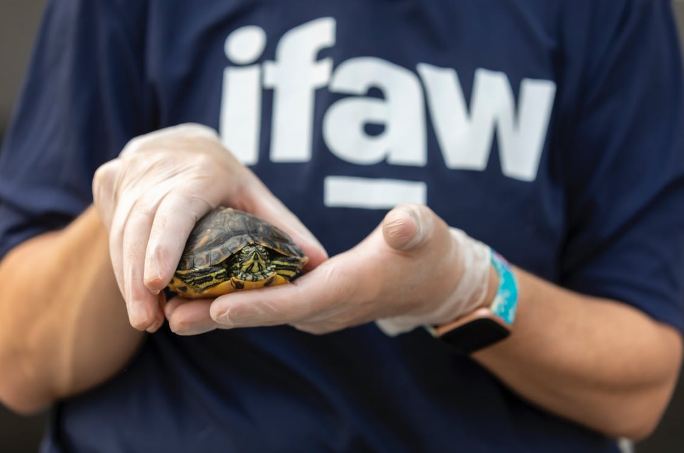Everybody loves animals! It’s a known fact that at some point of our lives, we want to own a pet. Some people are born animal lovers, others grow into it. Every animal is unique and adorable in their own ways; but some can have quite unusual behavior too.
As an inexperienced pet owner, understanding the mindset of animals is quite difficult. Even if you have always had a pet at your home you can still struggle to figure out their behavior sometimes. Well, luckily vets are available to make things less complicated for you.
We’ve been fascinated by everything that has to do with nature, so we’ve put together a list of some of the most interesting and animal facts only vets know about the animals. Let’s find out what those are…
Who are Vets anyway?
It’s no secret that veterinarians are in high demand, as 62% of American households have pets. Investing in an inexperienced veterinarian can be dangerous to the overall health and safety of your furry friend. Being a vet is quite challenging yet fun but that bit comes with a lot of responsibilities.
10 lesser known facts about Vets you didn’t know
- The term “veterinarian” comes from the Latin word veterinarian, meaning “working animal.”
- Almost 80% of active veterinarians are women.
- Dogs are the most popular animal appearing to veterinarians, and 46.3 million American families own them!
- All vets must have specialized knowledge. The most common form is a general care for certain pets and surgeries that require special veterinary equipment.
- However, others may conduct intensive research in oncology, radiology, animal dentistry, dermatology, cardiology, veterinary medicine, internal medicine or medicine, and exotic small animal surgery.
- Not all veterinarians practice medicine. Some involve basic research and the development of new treatments. Others apply their knowledge of animals to human problems.
- According to veterinary medicine, about 61% of all human pathogens come from animals.
- Veterinarians have taken the lead in fighting malaria in America!
- Veterinarians can make huge profits with refurbished medical equipment. They don’t treat people, so you don’t have to worry about the ongoing development of new and more expensive veterinary equipment. They can take advantage of this and buy used medical equipment to reduce the cost of pet visits.
- After graduating from medical school, veterinarians must make an oath and swear that they will use their knowledge to benefit and protect the health and welfare of animals.
Interesting Animal Facts Only Vets Know of
15 Interesting Facts About Cats
- This is how the cat says “I love you” when it hits its head, sits next to it, or shows its belly.
- Cats don’t like to drink water too close to food as the water near the food can be contaminated. Encourage your cat to drink water from the water bowl and separate it from the food bowl.
- The sensitivity of cat coins is genetic, and only about 50% of cats are affected.
- Dogs are natural hosts, but cats can also catch worms. Protect your pet every month with heartworm prevention products.
- If a cat skips an object, it needs ordinary care.
- Adult cats rarely feel when interacting with each other. Cats mate with their mother, but when they grow up, the cat feels only humans.
- If you neutralize or neutralize your cat, your cat can live longer. The robbed females lived 39% longer than the untreated cats, and the males lived 62% longer.
- Contrary to the belief of many, cats should not be fed milk or dairy products. They love the taste, but most cats do not tolerate lactose.
- Unlike cartoons, fish or dairy products cannot be fed to cats.
- Cats love glitter, but it’s not good for them that glitter. Shiny ingestion can cause intestinal obstruction, which can be harmful and even fatal!
- Cats today live about twice as long as they were 50 years ago.
- There are 4 lines of viruses in cats. You can move the top 2 rows regardless of the bottom 2 rows.
- Cat door was invented by Isaac Newton because his cat, Spithead, was still pushing the door while conducting an experiment that required darkness.
- Cats can make more than 100 votes.
- The cheetah is the only cat that doesn’t hide in its claws while resting.
- Cases of vomiting should be checked by a pet expert to ensure there the puking isn’t associated with an underlying medical condition.
15 Mind Boggling Facts About Dogs
- Petting a dog lowers blood pressure and relieves stress.
- Grapes, raisins, onions, garlic, wild mushrooms, chocolate nuts, and macadamia are very toxic to dogs.
- Toothpaste made for humans is toxic to dogs. Fortunately there is a dog toothpaste too!
- Dogs can be trained to detect certain types of cancer in humans.
- Garbage can spray 7-15 feet of water and keep your dogs away as it can spray longer when the wind blows!
- Some types of cancer can be prevented by neutralizing or neutralizing your dog.
- Studies have shown that dogs are more likely to get a stroke than to receive verbal praise.
- Dogs at work reduce stress and improve productivity, creativity, and customer experience.
- Some dogs like them, but dogs who don’t like laser toys can get obsessed with chasing light and shadows.
- Bathing your dog too often removes natural oils that can cause dryness, dandruff, and itching.
- Lila can’t throw feather pens, but even with 30,000 dogs, dogs should be far away!
- Touching your dog increases your and your dog’s oxytocin (“love hormone”) levels.
- Dogs don’t seem to feel guilty. The dog’s eye looking at you is probably reacting to your actions.
- Dogs are the only species that humans point to with their eyes or fingers.
- Contrary to rumors, giving dogs ice or ice water is not a life-threatening disease. However, be careful not to break the ice cubes and water too much at once to avoid damaging your teeth.
- The best way to handle matted fur on long-haired dogs is to gently comb the matt with the help of a soft-bristled brush. If the pet isn’t cooperating, a visit to a professional groomer might be necessary.
- Failing to trip a dog’s nails can change the angle of their standing position and even cause long-term arthritis to develop in the limbs.
13 Fact About Different Domestic Animals Only Vets Know
- Studies have shown that owners of pets over the age of 65 have 30% fewer doctor visits than seniors without pets.
- More than 75% of pet owners buy Christmas gifts for their pets.
- The American Heart Insect Association recommends year-round prevention.
- The study found that lost dogs are 2 1/2 times more likely and stray cats are 20 times more likely to return home when they have a microchip.
- Obese animals, like humans, can suffer from arthritis, diabetes, high blood pressure, and many other problems.
- Bats, skunks, and raccoons are the most common causes of rabies in pets.
- You smell like urine at home, but can’t find the stain? Cats and dogs’ urine glows when exposed to UV rays, so use a UV flashlight to find the cause of the smell.
- 70% of pet owners sign their pets on greeting cards. Are you one of them?
- Studies have shown that children living with pets under the age of one are less likely to develop pet allergies later.
- 58% of owners take their pets on vacation and family portraits along with them.
- 72% of dog owners believe their puppies can predict an impending storm.
- Smoke used can cause cancer in dogs and cats.
- Animal shelters have seen a significant increase in the number of pets returning after Christmas weekend, primarily due to pet gifts. Adoption is a big decision, so don’t scare your pet.
- Enabling a pet animal to interact with as many new faces as possible is vital for their development.
- If the pet doesn’t properly socialize, they can become fearful of others and even get aggressive tendencies.
- Play dates with vaccinated pets are a simple yet great way to help a pet interact with others for personal development.
We hope the information we share will help you take care of your furry bestfriends more appropriately. Even if you don’t have a pet (yet), these facts would help you in taking care of a friend’s or family member’s pet like a pro. And to help out other pet owners, make sure to share this post on your Facebook and Instagram feed. Using a pet-related hashtag can also help expand the reach of this vet-backed animal facts post.

